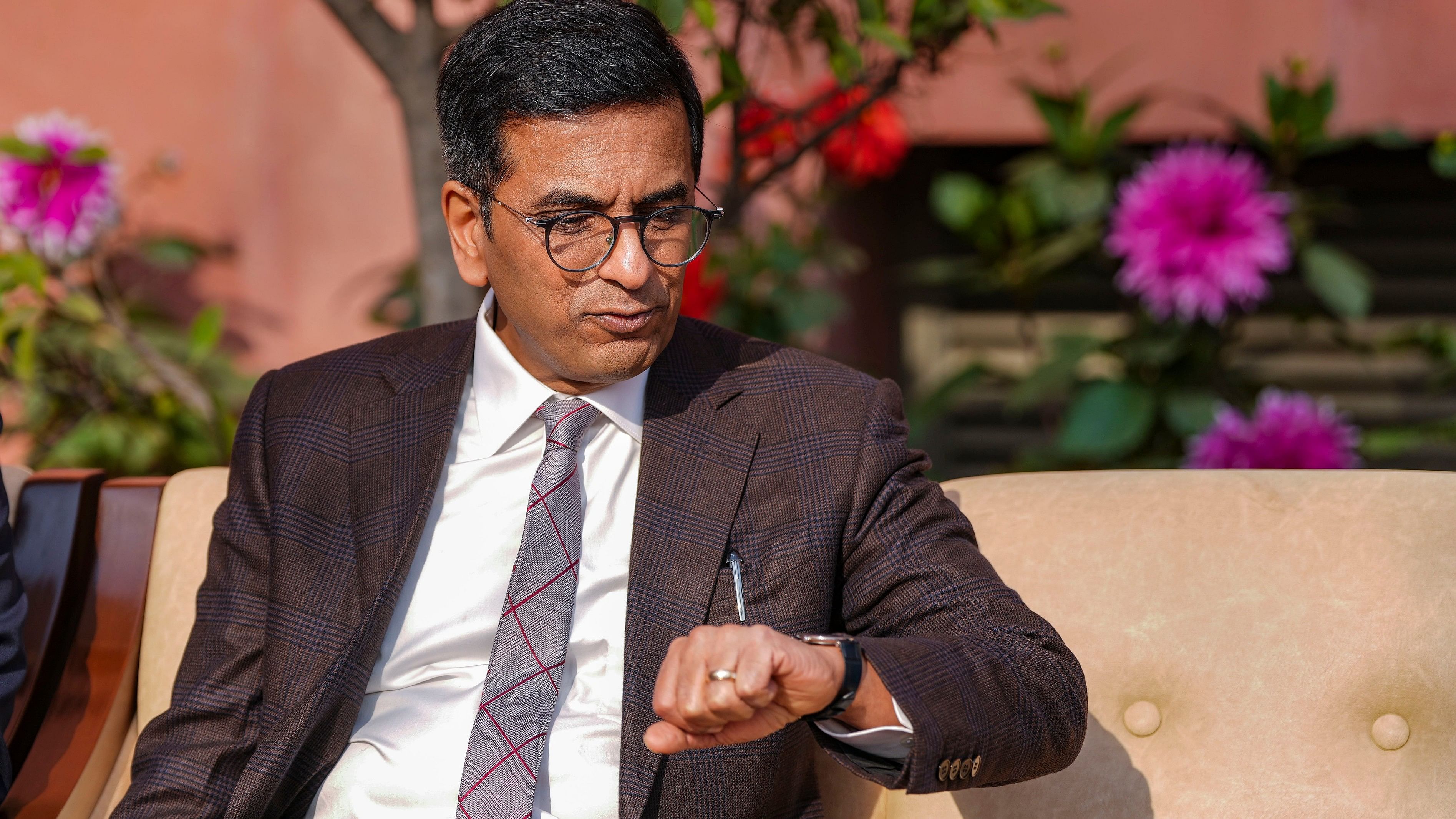
Chief Justice of India (CJI) Justice DY Chandrachud
Credit: PTI Photo/Ravi Choudhary
Dhaka: Chief Justice of India D Y Chandrachud on Saturday said the people gain confidence in the Constitution when Parliament, the Supreme Court, or the Election Commission rise to the occasion in situations of “ambiguity and uncertainty.”
Addressing the valedictory function of a two-day legal conference here in the capital of Bangladesh, Chandrachud said that constitutions by their nature are blueprints and not detailed, readied recons for all contingencies.
Constitutions are not like the Income Tax Act (where people come forward to pay it), Chandrachud said at the 'South Asian Constitutional Courts in the Twenty-First Century: Lessons from Bangladesh and India.' “It falls on us to take the Constitution to the lives of people, who are the source of our authority,” the CJI said at the conference, also attended by Bangladesh Prime Minister Sheikh Hasina.
“The legitimacy of the institutions of governance, including the courts, is primarily dependent on the functioning of institutions within the limits described by the Constitution,” Chandrachud said in his speech titled ‘Post Colonial Constitutional Development in South Asia.’
“The confidence of the people in the Constitution in fact (solidifies) only when the institutions of governance, be it Parliament, the central investigative agency, the Election Commission or the Supreme Court, rise to the occasion,” he said, adding, “Institutions rise to the occasions not in situations which have clear-cut answers, but in situations of ambiguity and uncertainty.” The mandate of the court is effectively made, if and only if, “we meaningfully secure the principles that the Constitution promises to them – liberty, equality, non-discrimination and due process.” Prime Minister Sheikh Hasina was the chief guest while Chief Justice of Bangladesh Obaidul Hassan chaired the event which was attended, among others by Law Minister Anisul Huq.
In his address, Chandrachud also said the court systems both in India and Bangladesh must make greater use of technology to “reach out to citizens” and bridge the gap by “breaking the internet divide.”
“We must make sure that we, as judges and courts, learn to communicate with our citizens, and reach out to them; we cannot expect our citizens to reach out to us. That represents the changing face of our society,” he said.
“I am always asked about the technology divide ... especially with the internet divide, even in countries such as India – Is technology only for the elite? My answer is completely to the contrary,” the CJI said.
In India, “we are using the money to break the internet divide,” he said and explained how as part of a technology project, the government of India allocated Rs 7,000 crore to the Indian judiciary.
“We have set up a national judicial database, which maps every case across India in judicial data grade. We have put forth the digital ACR for the Supreme Court resources,” Chandrachud said and asserted that the (digital) Supreme Court reports are free of charge, not just to the Indian citizens but also for people across the world.
“We are (also) setting ‘e-seva kendras’ in every court and judicial establishment in India so that all the citizens who do not have a smartphone or an Android phone can gain access to all the facilities that the judges and courts have provided,” the CJI added.
Among other things, the CJI also said, both India and Bangladesh share the tradition of constitutional and judicial systems largely aiming to ensure stability and both nations recognised their constitutions as “living documents.”